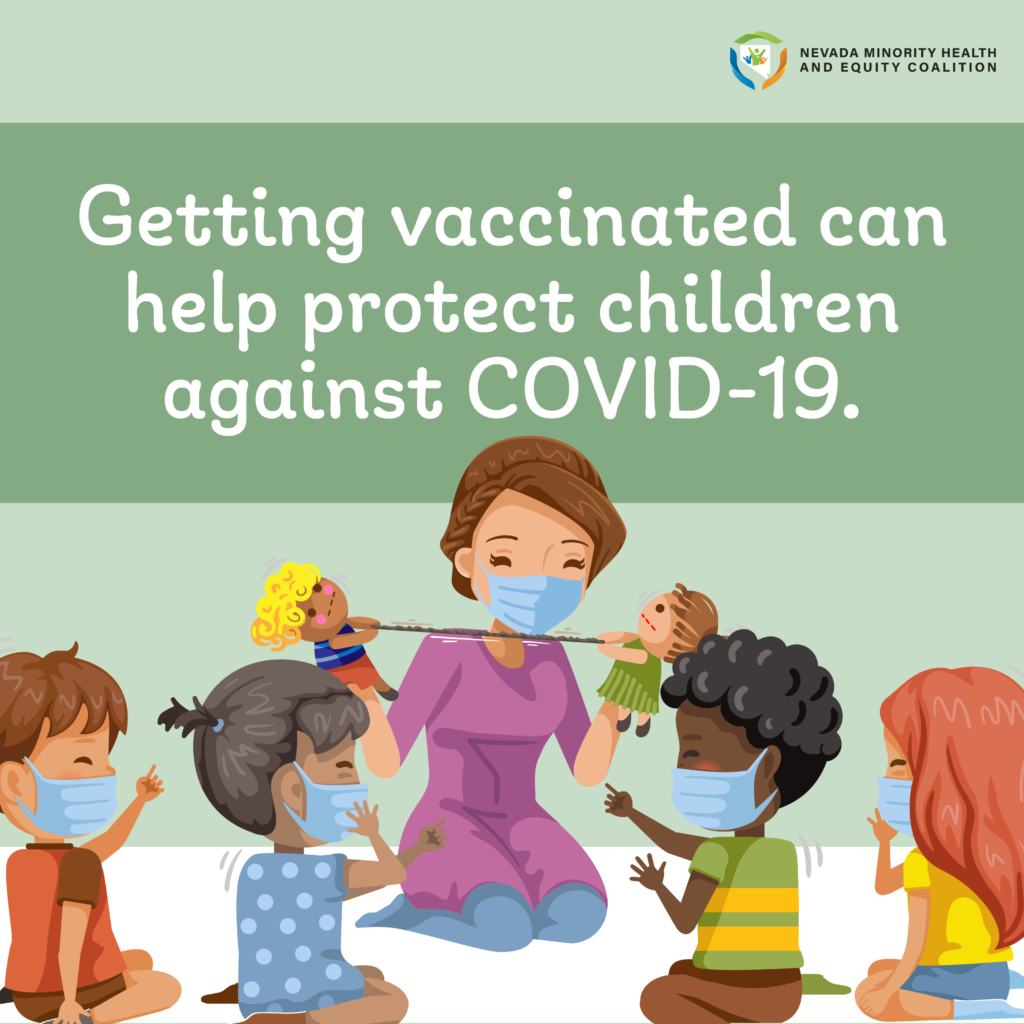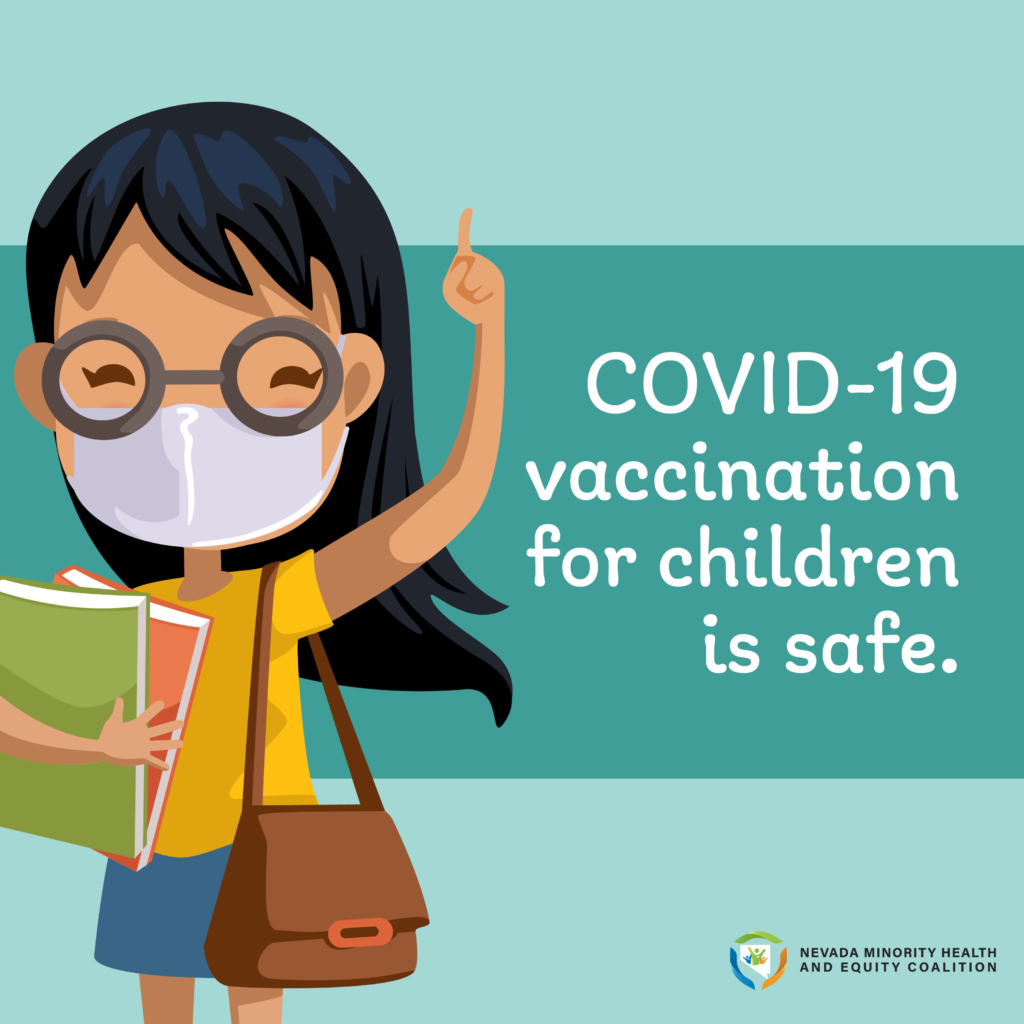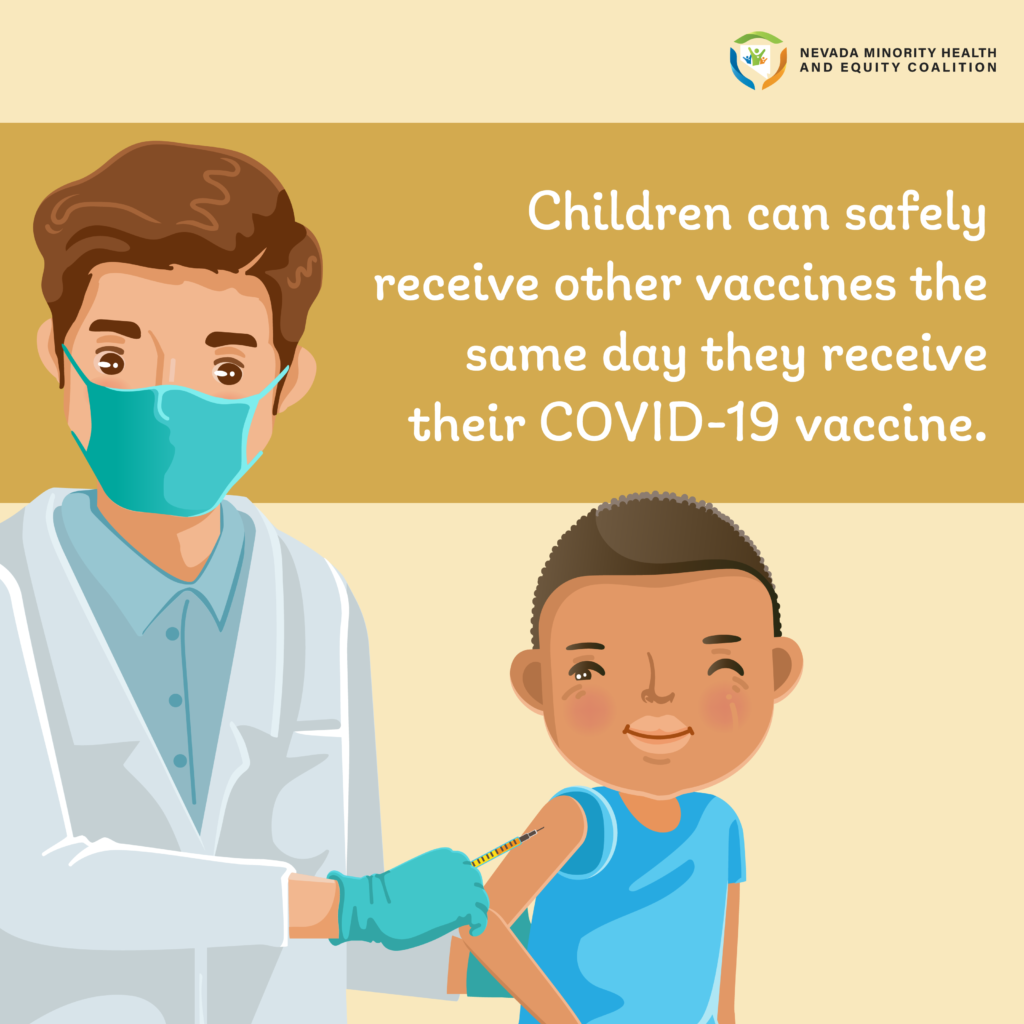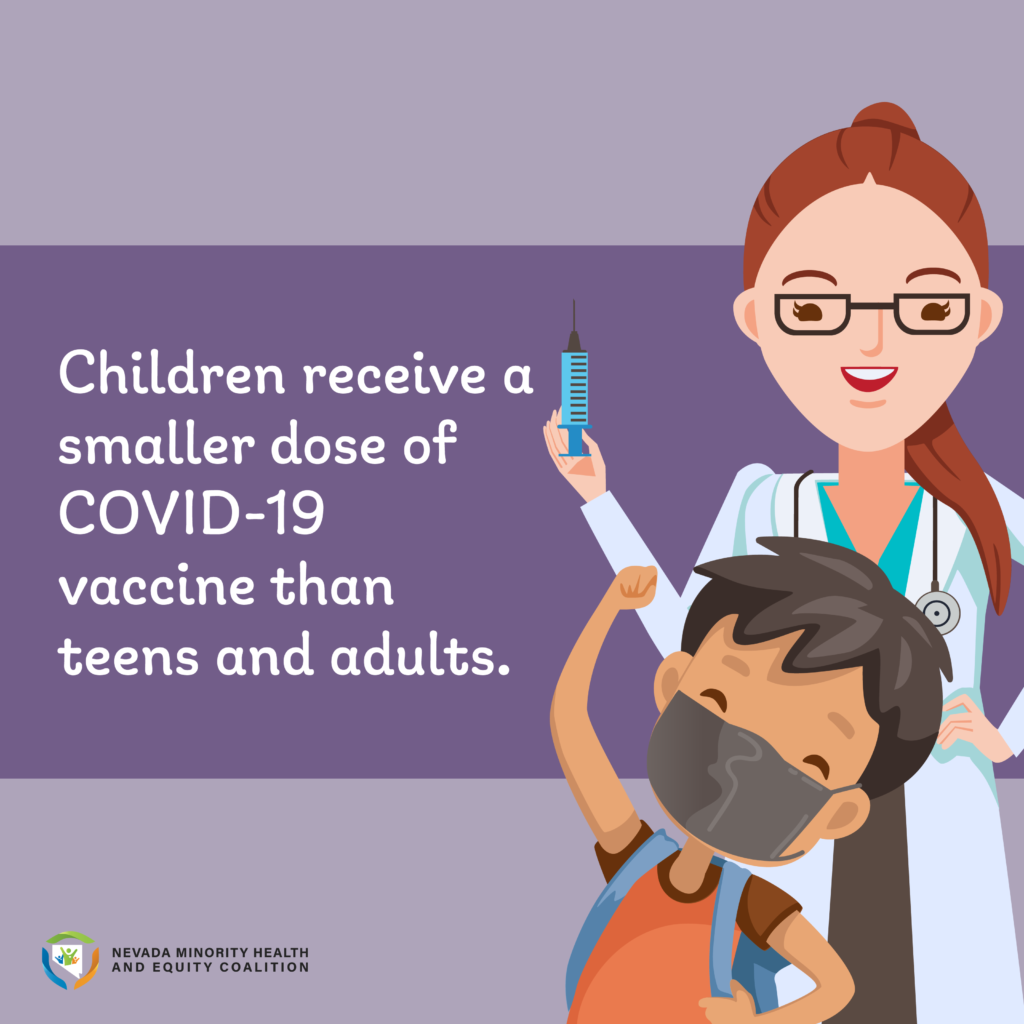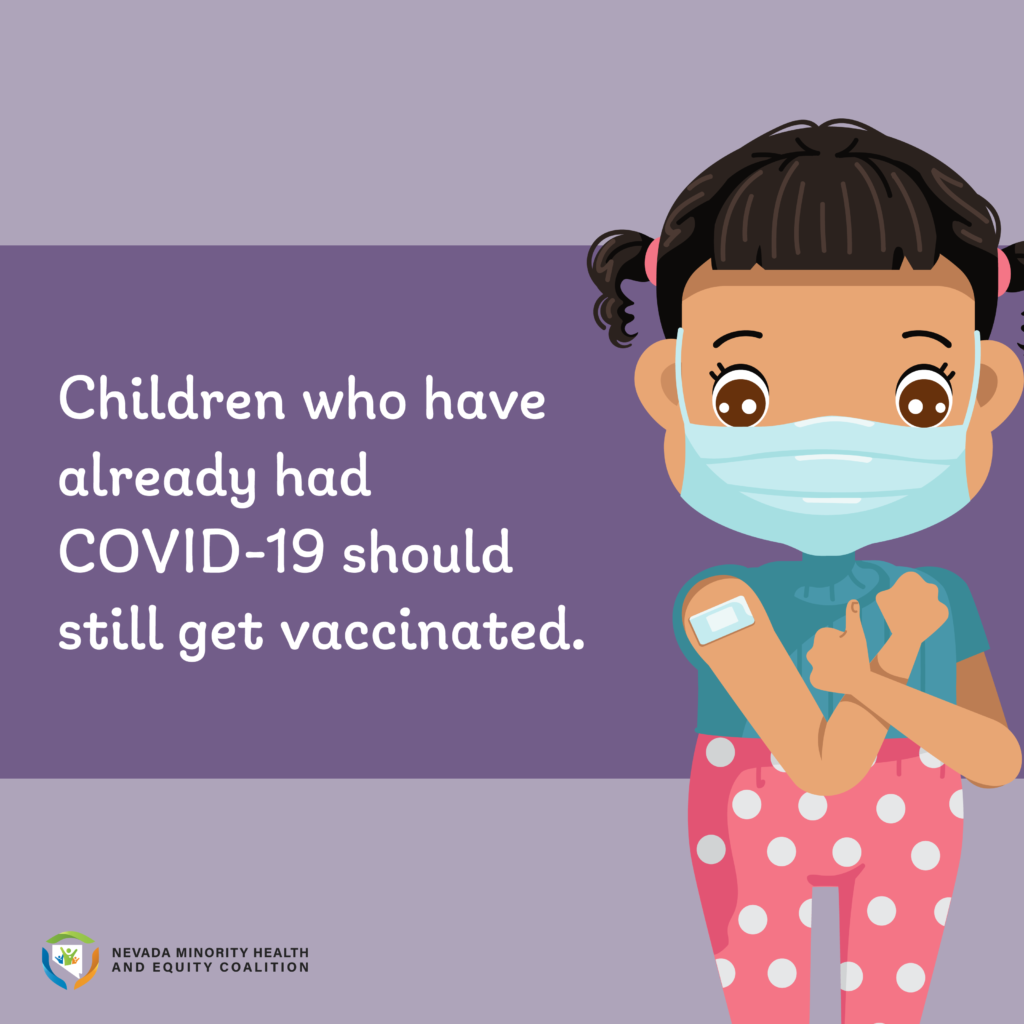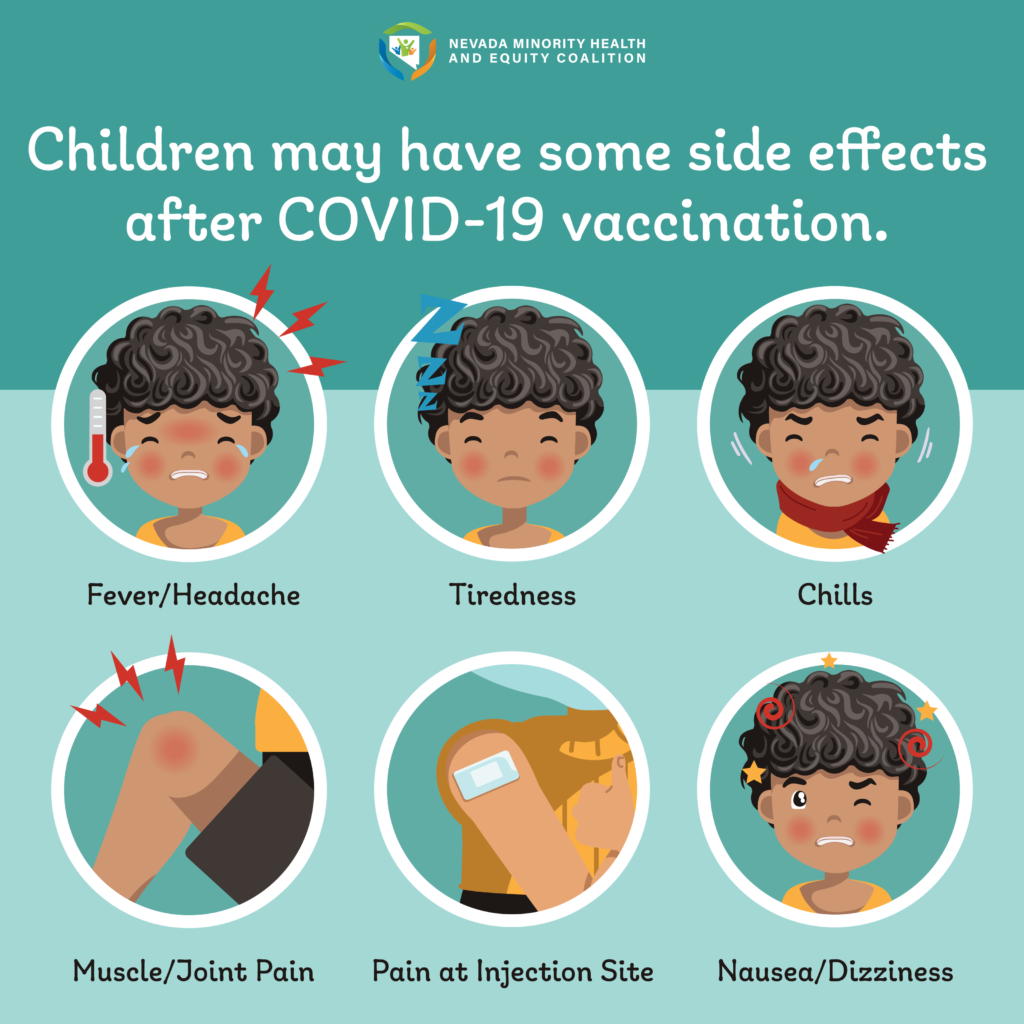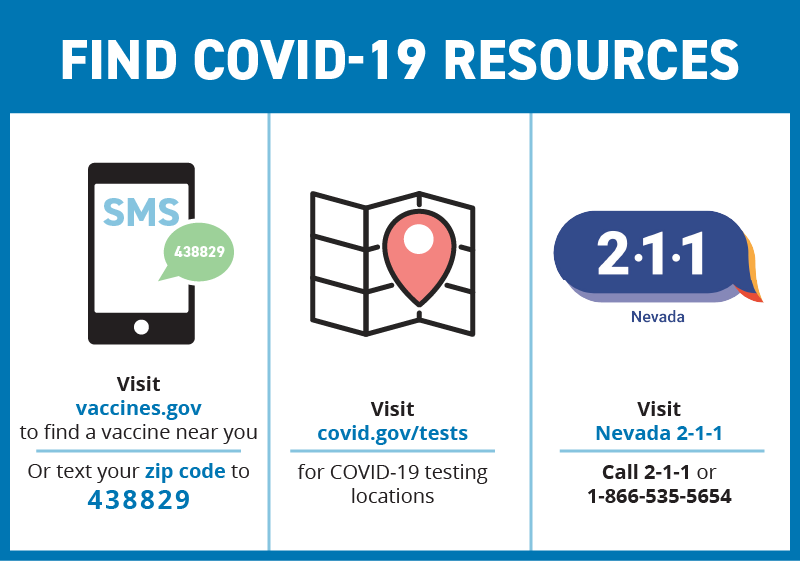
COVID-19 Vaccines for Kids
There is no way to know how COVID will affect your child, even if they do not have underlying health conditions. Just like adults, children can get very sick and experience long-term complications from COVID. The vaccines help prevent your child from getting very sick or being hospitalized from COVID-19.
Everyone age 6 months and up is eligible to get a COVID-19 vaccine. Much like the vaccines your child receives at their routine doctor’s visits, COVID-19 vaccines are safe and effective. The COVID-19 vaccines were made based on science and research that has been around for decades. These vaccines work similar to traditional vaccines because they teach your child’s immune system to recognize and fight off a virus if infection happens.
Thousands of children were given the vaccine and monitored during clinical trials before the FDA approval. Scientists and medical experts reviewed data from these clinical trials to confirm that the vaccines can safely protect your child with minimal side effects. Getting your child vaccinated against COVID can provide you with greater confidence for them to participate in childcare, school, and other activities.
Things to Know
Vaccine FAQs
Since there is no way of knowing how COVID-19 will affect your child, vaccinating them can help protect your child from getting very sick. The vaccine can help them continue participating in childcare, school, and other activities. Getting your child vaccinated will also protect more vulnerable family members, like their grandparents, from more severe consequences.
For more information: Should I vaccinate my kids against COVID-19?
As of June 17, 2022, the Pfizer-BioNTech and Moderna COVID-19 vaccines are authorized for children ages 6 months and up. Both of these vaccines are safe and effective at protecting against severe illness from COVID-19.
For more information: COVID-19 Vaccines for Children and Teens
Pain relievers are not recommended to prevent side effects. Additionally, aspirin is not recommended for use in anyone less than 18 years of age. You can give a non-aspirin pain reliever (like acetaminophen or ibuprofen) if your child has a fever or achiness after vaccination.
For more information: What should I do if my child has side effects after vaccination?
It is recommended that everyone over the age of 5 get an updated booster dose.
As of December 9, 2022, the updated (bivalent) vaccines have been made available to children between the ages of 6 months and 4 years. Children who received the Moderna primary series are eligible for the Moderna updated booster 2 months after they completed the primary series. Children who are currently completing the Pfizer primary series will receive a Pfizer bivalent primary vaccine as their third dose. If your child is under the age of 5 and has completed their Pfizer primary series, they are not eligible for any boosters.
For more information: Stay Up to Date with COVID-19 Vaccines Including Boosters
Yes, current COVID-19 vaccines can protect your child against new variants. New variants are also less likely to emerge as more people get vaccinated.
For more information: Does the COVID-19 vaccine protect kids from the omicron and delta variants of the virus?
Some children do not experience any side effects after vaccination. However, if side effects do occur, they are typically mild, last a couple of days, and similar to those experienced after routine vaccinations. These common side effects are normal signs that their body is building protection and symptoms should go away within a few days. Common side effects include pain at the vaccination site, fever, tiredness, headache, chills, and body aches.
Side effects are more common after the second dose. Younger children may experience fewer side effects after COVID-19 vaccination than teens or young adults. Children who are 3 years old and younger may be irritable, cry, and have a loss of appetite.
Adverse side effects after vaccination are rare and are monitored closely if they occur.
For more information: Possible Side Effects After Getting a COVID-19 Vaccine
No. There is currently no evidence that shows the COVID-19 vaccines cause fertility problems in either males or females. Studies have shown there are no differences in pregnancy success rates among individuals who are vaccinated, individuals who have been infected with COVID-19, and individuals who never had COVID.
For more information: COVID-19 Vaccines for People Who Would Like to Have a Baby
- Stay Up to Date with Your COVID-19 Vaccines | CDC. Accessed April 19, 2022. https://www.cdc.gov/coronavirus/2019-ncov/vaccines/stay-up-to-date.html
- Booster Shots and Additional Doses for COVID-19 Vaccines — What You Need to Know | Johns Hopkins Medicine. Accessed April 19, 2022. https://www.hopkinsmedicine.org/health/conditions-and-diseases/coronavirus/booster-shots-and-third-doses-for-covid19-vaccines-what-you-need-to-know
- Racial Diversity within COVID-19 Vaccine Clinical Trials: Key Questions and Answers | KFF. Accessed April 18, 2022. https://www.kff.org/racial-equity-and-health-policy/issue-brief/racial-diversity-within-covid-19-vaccine-clinical-trials-key-questions-and-answers/
- Ensuring COVID-19 Vaccine Safety in the US | CDC. Accessed April 13, 2022. https://www.cdc.gov/coronavirus/2019-ncov/vaccines/safety.html
- COVID-19 Vaccines Work | CDC. Accessed April 13, 2022. https://www.cdc.gov/coronavirus/2019-ncov/vaccines/effectiveness/work.html
- Monitoring COVID-19 Vaccine Effectiveness | CDC. Accessed April 19, 2022. https://www.cdc.gov/coronavirus/2019-ncov/vaccines/effectiveness/how-they-work.html

